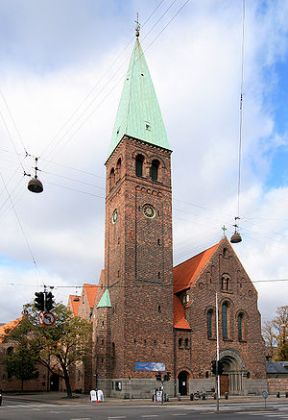Fourteen churches are to close in Copenhagen because of decreasing Church of Denmark congregations and declining population in some city areas. There are another two possible closures on the list of 17 being considered by the diocese of Copenhagen. But one, Enghave church has been saved because it is close to the historic central Carlsberg area.
However three new churches are to be built in development areas where the population is growing; in Sydhavn around the southern docklands area; in Ørestaden on the island of Amager; in Nordhavnen, which is one of the biggest new urban developments in Scandinavia, designed to house 40,000 people and create 40,000 jobs on the old industrial area around the northern docks.
It is estimated that about 80 per cent of Danes are tax-paying members of the Church of Denmark, the established Lutheran church. However fewer than five per cent attend services regularly, although about 41 per cent of Danish weddings still take place in church and nearly 90 per cent of funerals.
Half a century ago there were 76 churches in central Copenhagen serving a population of about 890,000. The number of churches then went up to over 91 but the church-going population has almost halved. At the end of the present reorganisation there will still be the same number of churches in Copenhagen as in 1960.
Only nine churches out of more than 2,000 have closed in Denmark since 1849.















